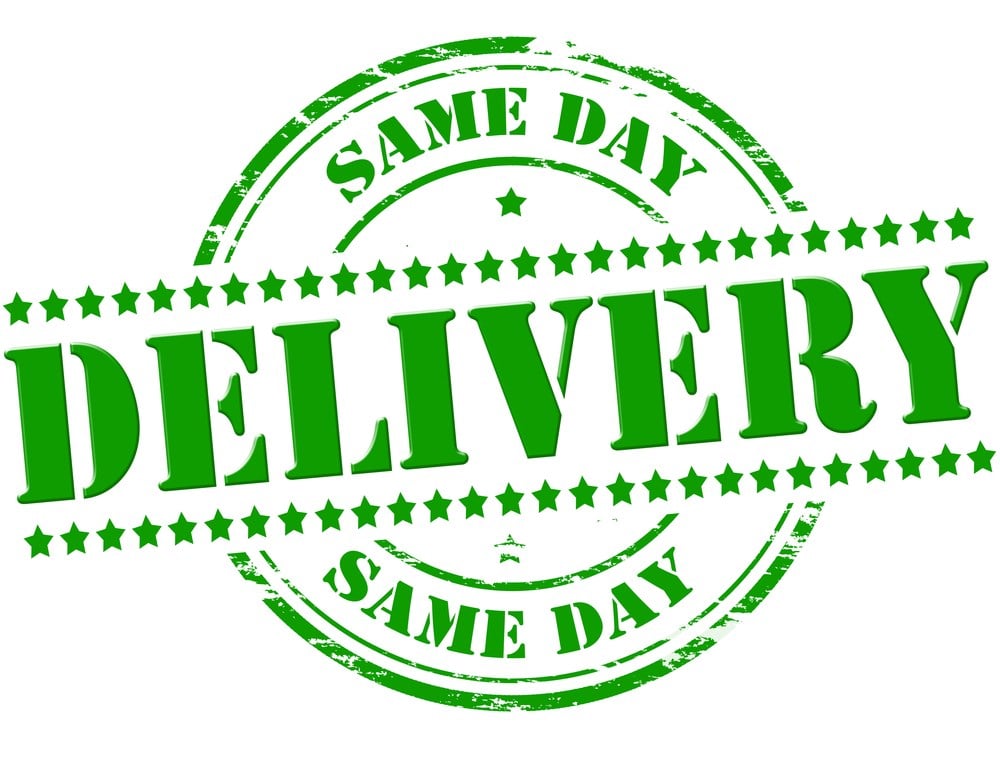
Amazon.com Inc. (NASDAQ: AMZN), Target Corp. (NYSE: TGT) and Walmart Inc. (NYSE: WMT) are in a race to see which company can offer the fastest, most efficient delivery services.
All of this, of course, is an effort to both increase revenue while slashing costs, two initiatives with the potential to increase margins and boost the bottom line for all three companies.
It’s perhaps an outdated and inaccurate quirk of S&P categorization that Amazon is housed with consumer discretionary stocks, while Target and Walmart are considered consumer staples stocks. All three operate grocery stores and sell essentially the same consumer goods, and are in essentially the same business, at this point.
Amazon led the way in fast shipping, rolling out its Prime two-day shipping service in 2005, and eventually introduced Prime one-day for customers in proximity to major cities. In 2018, the company began contracting with outside companies to deliver items via the now-familiar blue vans.
The company has also been expanding same-day delivery for customers in some regions.
Amazon building smaller fulfillment centers
If you are driving near big cities, you may have spotted Amazon warehouses beside freeways or near airports.
All those elements, plus many more, are behind the company’s push to get goods to customers faster, all while keeping costs for the company as low as possible.
Amazon is now building a new type of fulfillment center, smaller than previous iterations, in an effort to increase delivery times yet again.
According to a July blog post by Doug Herrington, CEO of Worldwide Amazon Stores addressing faster shipping speeds, the company has divided the U.S. into eight regions, with inventory stored closer to customers, “making it faster and less expensive to get those products to customers. Today, more than 76% of the orders we fulfill come from within the customer’s region.”
Same-day facilities cutting delivery times
The new same-day facilities are part of that new initiative. According to Herrington, the average time from picking a customer’s items to getting them to the dock is just 11 minutes in these same-day facilities, more than an hour faster than traditional fulfillment centers.
A glance at Amazon earnings data shows revenue has been steadily growing at single and low double-digit rates in the past eight quarters, while earnings have bounced back strong after a poor performance in 2022.
But traditional brick-and-mortar rivals Target and Walmart aren’t sitting back allowing Amazon customers to get their stuff faster. Instead, they are enhancing their own fast-shipping operations.
Amazon’s same-day sites, in addition to being efficient, are also directly challenging Walmart and Target stores. With same-day delivery, a customer could order an item and get it within hours, rather than making a trip to a physical store.
Walmart and Target are also speeding up delivery by fulfilling more orders closer to where customers are.
Target's same-day services driving growth
In Target’s much-better-than-expected third-quarter earnings, reported on November 15, the company cited same-day services as a growth driver, with a more than 12% increase in Drive-Up. Target offers same-day delivery via its subsidiary Shipt.
Because Target has physical stores, it uses those as its delivery and shipping hubs to fill 95% of online orders. Target does have 14 fulfillment centers, but says fulfilling directly from a store is 40% less expensive.
Target’s next-day deliveries have increased by 140% since 2020.
Meanwhile, Walmart is automating more of its warehouses, with human-assisted robots using forklifts to load pallets of goods into trucks. Autonomous forklifts allow a single worker to unload multiple trucks at once, while also monitoring pallet loads for damage.
This shift means Walmart can move more goods through its system faster, and get items to customers more quickly.
Walmart adding automated fulfillment centers
Walmart is also increasing the number of automated fulfillment centers adjacent to existing stores.
Before 2020, Walmart had plans to build out its online business, but the pandemic accelerated implementation of those plans.
Clearly, for Walmart, Target and Amazon the stakes are high as customer expectations for online shopping are ratcheted higher, and those sales will become more important to traditional brick-and-mortar retailers.
A look at Walmart’s earnings data show the company growing revenue at single-digit rates in the past two years, while net income has been increasing at single-digit or low double-digit rates.




